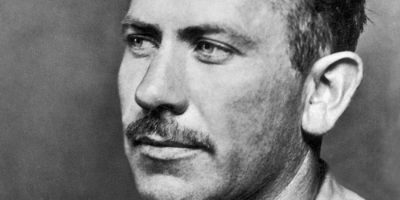5 famous Chinese emperors
China was ruled by 13 known dynasties, between 2070 BC to 1912. A dynasty was a series of leaders usually from the same family or ancestral lineage. The dynasty, led by a king meant that the father passed down the kingdom and leadership to his son (usually the eldest), or a close relation like a nephew. When the leadership was changed to a different family, then the dynasty changed. It is similar in many ways as a monarchy.
Dynasties in China are credited to have developed or destroyed China in different ways; the Sui Dynasty, for example, was known to have extended the Great Wall of China and built the Grand Canal, while leadership under the Ming Dynasty was known to have completed by the Great Wall, changed the Chinese capital to Beijing and built the Forbidden City!
These five emperors and kings ruled China under different dynasties during different times and made history in so many ways!
1. Emperor Taizong of Tang
He was the second emperor of the Tang Dynasty. He is known to have encouraged his father Li Yuan to rebel against the Sui Dynasty in 617 and is therefore credited as being the co-founder of the Tang Dynasty. Emperor Taizong ruled from 629AD to 649AD.
He was very good at handling weapons and fighting so much so that he killed his own two brothers and led a revolt against his father. He had however helped the family rule the empire even though he overthrew his father, and taking his throne. The empire improved a great deal during his rule. He expanded the kingdom, stabilized his government and prospered it through military, economic, academic, and financial stability. He is regarded as one of the best monarchs that China has seen; and as a matter of fact, other monarch’s works were judged against that of Emperor Taizong. He married Zhangsun Sheng, the daughter of the Sui dynasty general, at the age of 14. She was 12 at the time and later would become one of his most trusted advisors.
After his death, the emperor, whose original at birth at the name was La Shimin, his son Li Zhi took the throne. He had appointed his eldest son Li Cheng Qian as his successor and crown prince at the time but the young man thought his father would change his mind and replace him with his younger brother Li Tai and tried a coup, which failed. His father then replaced him with Li Zhi instead.
2. Puyi ‘Henry Puyi’
Puyi whose reign name was Xuantong was the last emperor of China and the 12th and the last emperor of the Qing Dynasty. He was born in 1907 and died in 1967. He assumed the throne at the age of only three years when his uncle died. And even though he served using a regent, he was forced to abdicate therefore ending the imperial system which had been ruling China for thousands of years, and also bringing to an end the 267 years of the Qing Dynasty rule in China.
He silently relocated to Beijing to live at Tianjin a Japanese colony and was later installed as the emperor of the Japanese puppet state of Manchukuo. After WWII, he was arrested and taken back to China and tried as a war criminal but was pardoned. The autobiography ‘From Emperor to Citizen’ was published after Puyi was reduced to a worker in a repair shop. He again went on to work as a researcher at the Chinese People’s Political Consultative Conference.in 1987, he was the subject of the biopic, ‘The Last Emperor’. Talk of falling from grace to grass!!
3. Yongle Emperor
Meet the man who moved the Chinese capital to Beijing and is credited for building The Forbidden City! He was the third emperor of the Ming Dynasty from 1402 to 1424. He reformed China by invading nations such as Vietnam and Mongolia and is known to have sent a ship to the Indian Ocean and Africa. He was a great leader and a tyrant in equal measure. He is usually compared to Peter the Great; while he was an ambitious leader who valued political and diplomatic alliances, he was also a brutal man who not only killed his enemies but executed the families and friends. He was a devoted Tibetan Buddhist, even known to be quite extremist. Yongle was not supposed to be emperor, his father died in 1398 and his elder brother’s son was named as a crown prince but three years into his rule, the empire had been marred by so much war are downfall such that Yongle decided to drive him out of power and focused on improving the economic, military and general state of the empire, which he did very well. It was during his short rule that he moved the Chinese capital center from Nanjing to Beijing, therefore, centralizing power and money, and greatly expanded the Forbidden City; a city that became home to about 22 emperors after him. Beijing city became home to the Emperor and was officially declared the capital city in 1421.
He died in 1424 after an illness he got from one of his campaigns in Mongolia and his eldest son Zhu Ghaozin, who had been diligently running state issues in his father’s absences took over from him.
4. Chongzhen Emperor
Chongzhen means ‘Honorable and auspicious. Chongzhen was the 17th and the last emperor of the Ming Dynasty and also, the last Han Chinese to reign as the Emperor of China. The Han Chinese are an East Asian ethnic group- from China, who make up 18% of the world’s population. Chongzhen is known to have tried to revive the failing Ming Dynasty. He grew up in quite a hostile family and it is said that his father had not been liked by his grandfather Wanli Emperor. His mother was also known to have been executed by his father when he was only four years old! He was not liked by either his father or grandfather and was not taught governance or given support. He only took the throne when his brother (who was supposed to be king), forced him to since he was sick and could not assume the position of the king in his state, and there were fears that Eunuch Wei would take over the throne. Eunuch, who wanted a baby to take over power had already taken over the state agencies and made alliances with officials and when Chongzhen took over power, he took time to study him and eventually eliminated his and his allies. Wei committed suicide and his wife was sentenced to death.
That, however, was not the end of his troubles. He was soon to realize that his grandfather, father, and brother had left him a disaster of a kingdom. It was marred by corruption, inefficiencies, conflict within the government, uprisings within the peasant group, enemies; he also went through bad natural disasters- floods, plague, and constant drought. There were no taxes to be collected, no food in the kingdom and this meant he could not protect his kingdom and his soldiers who were not being paid, defected and joined rebel groups. Because of these issues and betrayal of his generals and Li Zicheng, he committed suicide by hanging himself in Meishan, next to his palace.
5. Zhu Yuanzhang
Zhu Yuanzhang was the founder of the Ming Dynasty in 1368; a dynasty that ruled China for 276 years under 16 emperors. He was also known as Hongwu Emperor which means ‘vastly martial’. Zhu Yuanzhang made the city of Nanjing in the east, as his capital during his reign. Zhu, who overthrew the Yuan Dynasty in 1368, was born a peasant, became a monk in a Buddhist monastery, thereafter a rebel leader after his monastery was destroyed during a conflict; then the founder of one of the Chinese dynasties.
He is known as having been a charismatic leader, who took care of the poor, fought corruption and brought major developments to the nation. As a matter of fact, he urged his army to do farm work and assist the locals in farming so that they could get food! It was only after he had defeated the Yuan Dynasty that his army marched to the capital of Beijing and the Yuan Dynasty leader took off with his family. He improved the welfare of his people, giving free medication, houses, free food to the elderly, lowered taxes and encouraged agriculture.
Planning a trip to Paris ? Get ready !
These are Amazon’s best-selling travel products that you may need for coming to Paris.
Bookstore
- The best travel book : Rick Steves – Paris 2023 – Learn more here
- Fodor’s Paris 2024 – Learn more here
Travel Gear
- Venture Pal Lightweight Backpack – Learn more here
- Samsonite Winfield 2 28″ Luggage – Learn more here
- Swig Savvy’s Stainless Steel Insulated Water Bottle – Learn more here
Check Amazon’s best-seller list for the most popular travel accessories. We sometimes read this list just to find out what new travel products people are buying.















